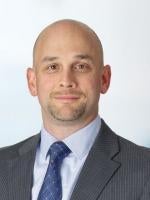As the established gatekeepers with respect to expert testimony, district courts have broad discretion on whether to admit or exclude such evidence. The Vermont district court recently opted to deny patentee defendant Advanced Mobile’s (“AMHS”) motions to disqualify both of declaratory judgment plaintiff Mobile Medical’s (“MMIC”) expert witnesses, who had provided opinions relating to the invalidity of AMHS’s patent. AHMS’s patent describes a transportable van in which invasive surgical procedures can be performed. MMIC obtained opinions from two experts—the first a vehicle engineer and the second a military surgeon—that the features of the patent claims were known and obvious to those of ordinary skill in the art prior to the filing date of the patent.
AMHS sought to disqualify MMIC’s engineering expert on several grounds. First, AMHS argued that the expert’s report was not his own work and was instead drafted by counsel. However, the expert testified that he spent almost 20 hours on his analysis, including an entire day dictating the opinions to counsel. The expert also edited the draft report for accuracy and made necessary changes. In light of these facts, Judge Sessions ruled that disqualification was not warranted because “[the expert’s] testimony reveals substantial involvement” in preparing the report and that generally, exclusion on such grounds is not the proper remedy.
AMHS also argued that the engineering expert’s invalidity analysis should be excluded because it had an unreliable foundation—namely, it failed to address obviousness and to account for hindsight bias. The court found that the expert’s analysis was based upon pre-filing technology and grounded in light of what one of ordinary skill would have considered obvious at the time of filing. Therefore, the court declined to disqualify the expert on this basis.
Lastly, AMHS asserted that the engineering expert’s qualifications and experience were insufficient to qualify him as an expert. However, the expert had an advanced degree in industrial technology and had been involved in designing and building expandable surgical and medical trailers, among other vehicles, for 27 years. As a result, the court found his background sufficient to qualify him as an expert.
AMHS’s attempt to disqualify MMIC’s medical expert met a similar fate. AMHS argued that the medical expert should be disqualified because he failed to explain the methodology he used to arrive at his opinions on obviousness, and thus, the court would be unable to determine the reliability of the opinions. Judge Sessions found that the medical expert’s opinions were largely based upon his personal experience as a military surgeon over a 40-year career and that his specialized knowledge of the relevant time period rendered his opinions admissible.
The case is Mobile Medical International Corp. v. Advanced Mobile Hospital Systems, Inc. et al., No. 2:07-cv-231 (D. Vt.), before Judge William K. Sessions, III.



 />i
/>i

